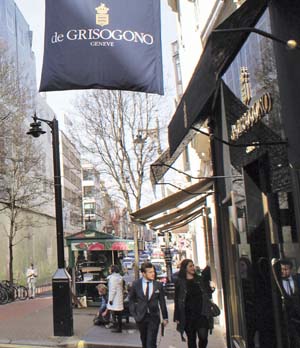A council in central London has decided to stop looking at its public space CCTV from September 1. That’s when a contract with G4S for control room staff expires.
The crime and disorder, fixed CCTV service provided by Westminster City Council is not considered to be the most effective use of the council’s limited resources. That’s according to a report to Westminster City Council’s cabinet. The report says its CCTV service is ‘primarily reactive in nature, supporting police prosecutions and other post-event activity’. The Met Police benefit, but do not pay for it; ‘the operational benefit to the council is limited’. The physical kit is described as being in ‘declining health’. The council in its words ‘would be prepared to transfer the cameras and feeds over to partners such as the Metropolitan Police’. A lease on the control room at the Trocadero is due to expire in 2017.
As for the part that Westminster’s cameras play in such busy and high-profile parts of London as Hyde Park (which has six cameras) Leicester Square, the council says that its CCTV plays a ‘relatively marginal role in providing CCTV coverage of the city’. A number of other systems operating provide extensive coverage, the report adds. The property provider City West Homes for instance operates what the report terms ‘an extensive CCTV system across Westminster’, about 500 cameras, including mobile wireless cameras; but without a control room or operators; though anti-social behaviour managers and some other staff can view cameras on portable devices.
Above all the reason for switching off, as the report makes plain, is lack of money. The council would save about £1m a year in running the CCTV, besides £1.69m budgeted for of capital spending. Set against that, the costs of decommissioning the service (by the installer Atec) have been estimated at £300,000. Westminster has been looking for others – such as the Business Improvement District in the Oxford Street area, The New West End Company – to give for years, but the then Mayor of London Boris Johnson and the Home Office said no in 2014, for example.
The report brings out the fragmented nature of public space cameras – paid for and managed by various departments in local government, and central Government in central London. Police at West End Central Police Station have a control room managing cameras ‘within the Government Security Zone’. Transport for London has CCTV at Underground stations and Victoria Coach Station. For example, Westminster’s Parking Services are proposing to introduce 11 automated cameras, to replace some wifi cameras, redeployed around sites as required. A CCTV contract with NSL was due to end on June 30; Parking Services would then cease to operate cameras: “The CCTV control room will close and the operation will be managed from Dingwall in Scotland.”
As the report points out, a council has no statutory duty to provide CCTV services, which stretch as far north and west as Lancaster Gate, Maida Vale, Bayswater and Regents Park (a single camera). The report speaks of the Mayor’s Office and the Met Police looking at a ‘pan-London solution to CCTV provision’; which evidently has not happened in time.
While the closure might seem sudden – a June report for a September switch-off – Westminster sets out that it’s been casting around for funding from others for a couple of years.
Big Brother Watch view
Visit https://www.bigbrotherwatch.org.uk/2016/06/another-council-prepares-to-scrap-cctv/. The civil liberties campaign group says that while it is heartening to see more and more councils begin to properly question what benefits they are getting out of CCTV cameras it must be remembered that this may just be a lull before a wave on new surveillance technology hits our streets: “High definition cameras will offer enhanced opportunities for facial recognition whilst so called tag and track systems allow individuals to be identified and tracked with cameras alerting operators whenever the target appears.”










